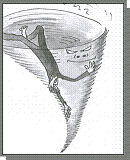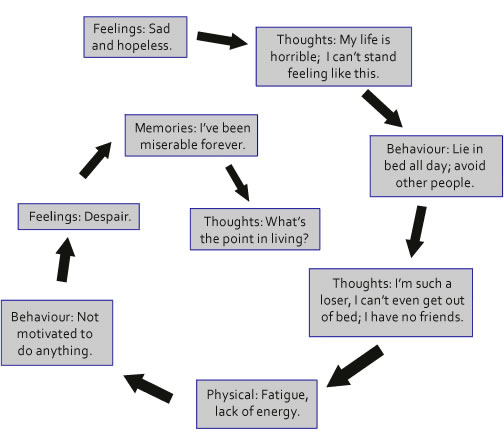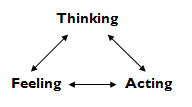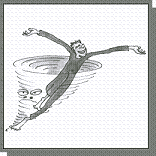 In another post, we looked at the vicious cycle of depression involving thoughts, behaviours, feelings, memories, and physical sensations that contribute to depression. When you’re experiencing depression, all of these aspects of your life interact with each other, generating a downward spiral bringing you deeper into depression. Negative patterns of thinking often have a adverse influence on behaviour; distressing physical symptoms often effect our feelings, leading to sadness and despair; and so on.
In another post, we looked at the vicious cycle of depression involving thoughts, behaviours, feelings, memories, and physical sensations that contribute to depression. When you’re experiencing depression, all of these aspects of your life interact with each other, generating a downward spiral bringing you deeper into depression. Negative patterns of thinking often have a adverse influence on behaviour; distressing physical symptoms often effect our feelings, leading to sadness and despair; and so on.
Describing this downward spiral of depression in The Mindfulness & Acceptance Workbook for Depression, a workbook based on Acceptance and Commitment Therapy (ACT), Kirk Stroshal and Patricia Robinson note that:
The number one thing to remember about depression is that it a downward spiral in which experiences in one realm of living create a domino effect that results in a decline in other areas. There are five main ways that most people experience the downward spiral of depression: feelings, sensations, thoughts, memories, and behaviours.
An example of how depression can spiral downward is depicted below:

The longer this sort of downward spiral of depression goes on, the more difficult it is to break. However, making changes in one area can be enough to disrupt the spiral.
Cognitive therapy can help you learn to adjust negative patterns of thinking that generate downward spirals. Mindfulness can teach you to be able to experience painful emotions, memories and physical symptoms without reacting in ways that contribute to downward spirals. Cognitive-behavioural therapy (CBT) can help you find behaviours that improve your mood rather than send it spiralling down.
When you are at the bottom of the spiral things can look pretty bleak and hopeless. But making small changes in any of these areas can be enough to stop things from continuing to spiral down. Then it becomes less of a struggle to make further changes. And as you start making these changes, just as the momentum from negative thoughts carried you deeper into depression, you’ll be able to generate positive momentum that can reverse the cycle and help lift you out of your depression.
This relationship between our thoughts, feelings, emotions and bodies are explained in more detail in the video below. For more tips to help cope with and manage depression, please check out my free Self-Help for Depression course.

I’m a Guelph therapist specializing in helping people overcome depression, anxiety and low self-esteem. For more information about how I can help you break out of downward spirals of depression, or to make an appointment for counselling or therapy in Guelph, please call me at 226-500-4086 or email greg@guelphtherapist.ca.





great post as usual!
Depression is overwhelming and can really control and take over a persons life. It needs more attention brought to it as many people suffer with this everyday.